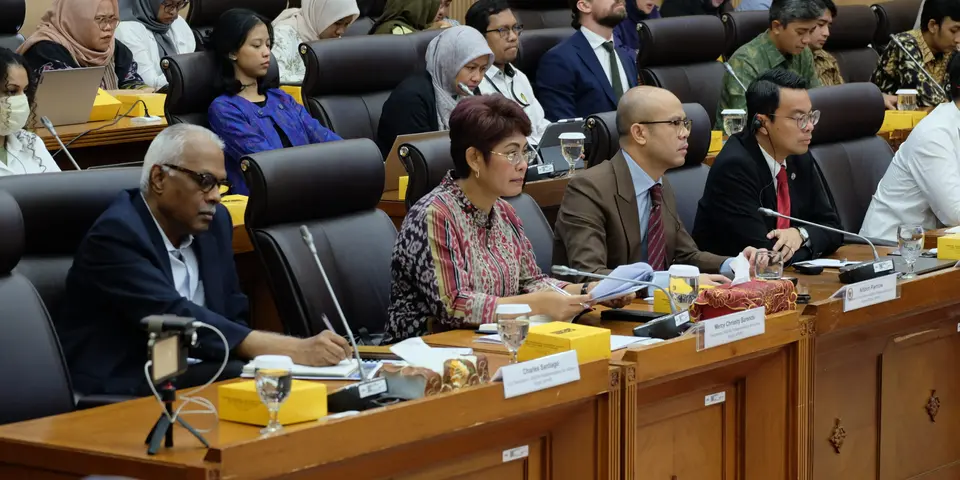
Southeast Asian MPs launch International Parliamentary Inquiry to investigate the impact of industries on environment
July 23, 2024

JAKARTA – On Monday, ASEAN Parliamentarians for Human Rights (APHR) held the first hearing of its International Parliamentary Inquiry (IPI) on the adverse impacts of industry activities on the environment, particularly focusing on nickel mining and deforestation in Indonesia.
“We need to do better as parliamentarians, we need to protect our people and our environment,” APHR Chair and member of the Indonesian House of Representatives Mercy Chriesty Barends said in her opening remarks for the hearing. “We are conducting this inquiry to better understand and hear from each and every one of you and to propose recommendations on what needs to be done.“
The hearing, held at the Indonesian House of Representatives in partnership with the House’s Commission IV (which oversees agriculture, forestry, maritime affairs, fisheries and food) and Commission VII (which oversees energy, natural mineral resources, research and technology, and the environment), featured parliamentarians as well as representatives from government ministries, state institutions, the private sector, and civil society.
The hearing was attended by members of APHR’s IPI Committee – Mercy Barends, former Malaysian member of parliament Charles Santiago, Thai member of parliament Nitipon Piwmow, and Malaysian member of parliament Lee Chean Chung – as well as Commission IV deputy chair Anggia Erma Rini and Commission VII chair Sugeng Suparwoto and Commission VII members Bambang Pattijaya and Dyah Roro Esti.
The parliamentarians spoke about the need to ensure that industries that have the potential to damage the environment are properly overseen. The hearing particularly focused on nickel mining because Indonesia has 42% of the world’s nickel reserves, as well as substantial reserves of copper, gold, tin, and, notably, coal.
“Prime and pristine forests are not easily replicated, even with reforestation and rehabilitation policies. This is something that the government needs to seriously take into account,” said Lee Chean Chung.
“We need to look out of the box, we need to ensure that just energy transition truly results in justice for the most vulnerable in our societies,” added Charles Santiago.
The hearing is the first in a series that will be conducted in two other countries in Southeast Asia, namely the Philippines and Thailand. The IPI’s focus is on industries related to large-scale deforestation, degradation and depletion of coastal and marine resources, and pollution of natural water resources.
Information gathered during the IPI will go through a verification process, and a final report will be launched emphasizing the panel’s key recommendations for ASEAN, governments, parliaments, the private sector, civil society, and other stakeholders. The IPI aims to better understand the situation and foster collaborative approach in the hope that parliamentarians across the region can develop better policies.
“We are all facing the same problems in balancing economic interests and protecting the environment. If we share our experiences, ASEAN countries can move forward together,” said Nitipon Piwmow
ASEAN Parliamentarians for Human Rights (APHR) was founded in June 2013 with the objective of promoting democracy and human rights across Southeast Asia. Our founding members include many of the region's most progressive Members of Parliament (MPs), with a proven track record of human rights advocacy work.